In an impressive first quarter, we continued to build towards the mission of advancing Bitcoin with notable improvements and upgrades across our product suite: the Liquid Network (for which we serve as technical providers), Core Lightning, Blockstream Green, and Blockstream Jade.
We also made progress on the ongoing expansion of our Bitcoin mining colocation services and the development of the industry's first institutional-grade miner with scalable mining technology. We then formalized the Blockstream Research division and championed greater Bitcoin security and privacy with the introduction of multiple draft Bitcoin Improvement Proposals (BIPs), including codex32 seed encoding (BIP 93) and the new MuSig2 signature scheme (BIP 327).
Join us for this quarterly report as we delve into a groundbreaking quarter, showcasing the strides we have made in building the infrastructure for the Bitcoin economy.
Expansion of Mining Operations
In response to unprecedented demand, we accelerated the expansion of our Bitcoin mining colocation services across North America, with more than 500 megawatts in the development pipeline. Scaling up our mining facilities and services will help us meet the growing demand from institutions and the private sector while sharpening our efforts in integrating renewable energy sources. As an essential part of our growth strategy, we are also committed to the ongoing development of the industry's first institutional-grade, purpose-built Bitcoin miner engineered for scalability. We are excited to share more details on the state-of-the-art miner following our 2021 acquisition of Spondoolies in the second half of this year.
Further Maturation of Bitcoin Capital Markets on Liquid
The digital asset market on the Liquid Network continues to mature, with the onboarding of new financial use cases and models to Bitcoin-based capital markets. Q1 saw significant developments, including the Blockstream Mining Note (BMN) marking the mid-point of its 36-month tenure, and Mifiel's promissory note issuance which, having already accumulated over $330M, is projected to reach $700M by the year's end.
BMN
The BMN offers qualified non-US investors exposure to 2,000 terahashes per second (TH/s) of Bitcoin hashrate at Blockstream's mining facilities in the form of a tokenized security. As of this update, one BMN1 token has earned ~6.44 BTC, more than halfway through a three-year term. As a result, investors from tranches one through seven have now seen unrealized gains in terms of bitcoin earned per token.
"Since our last update, the range of the maximum and minimum output of BMN in Bitcoin terms is becoming more narrow and is currently between 7.95 and roughly 8.36 BTC at the end of the three years. Unless network hashrate increases at an annual rate of nearly 80%, the 8 BTC per BMN is likely to be locked in." — Adolfo Contreras, Business Development at Blockstream.
Mifiel
Another noteworthy development has been legal company Mifiel's promissory note issuance on Liquid. Now, with a total issuance worth $330M, the promissory notes signify a significant step forward in the adoption of tokenized finance among industry players, as well as the increasing importance of Liquid in facilitating secure, efficient issuances.
The tokenization of promissory notes allows issuers to improve the efficiency of the issuance process and eliminate the need for expensive custodial services, delivering a more cost-effective solution. Furthermore, by tokenizing these debt instruments, companies can find new sources of liquidity and global investment opportunities, completely transforming the management and trading of these instruments in modern capital markets.
Building on Bitcoin
Bitcoin infrastructure development is at the core of what we do at Blockstream. From launching Bitcoin's first-ever sidechain to being at the forefront of Lightning innovation to offering the industry's most accessible open-source hardware wallet with FOSS firmware, building on Bitcoin is part of our DNA.
During Q1, our engineering teams continued this mission by delivering new functionality and upgrades to our suite of Bitcoin solutions.
Liquid Network
As the technical provider for Liquid, we focus on updating and optimizing Elements, the underlying, open-source codebase that Liquid is built on. Among the biggest improvements this quarter was the addition of a native Testnet and reducing memory usage by 50% to make it easier to run a Liquid node on cheap hardware, as well as a slew of performance gains.
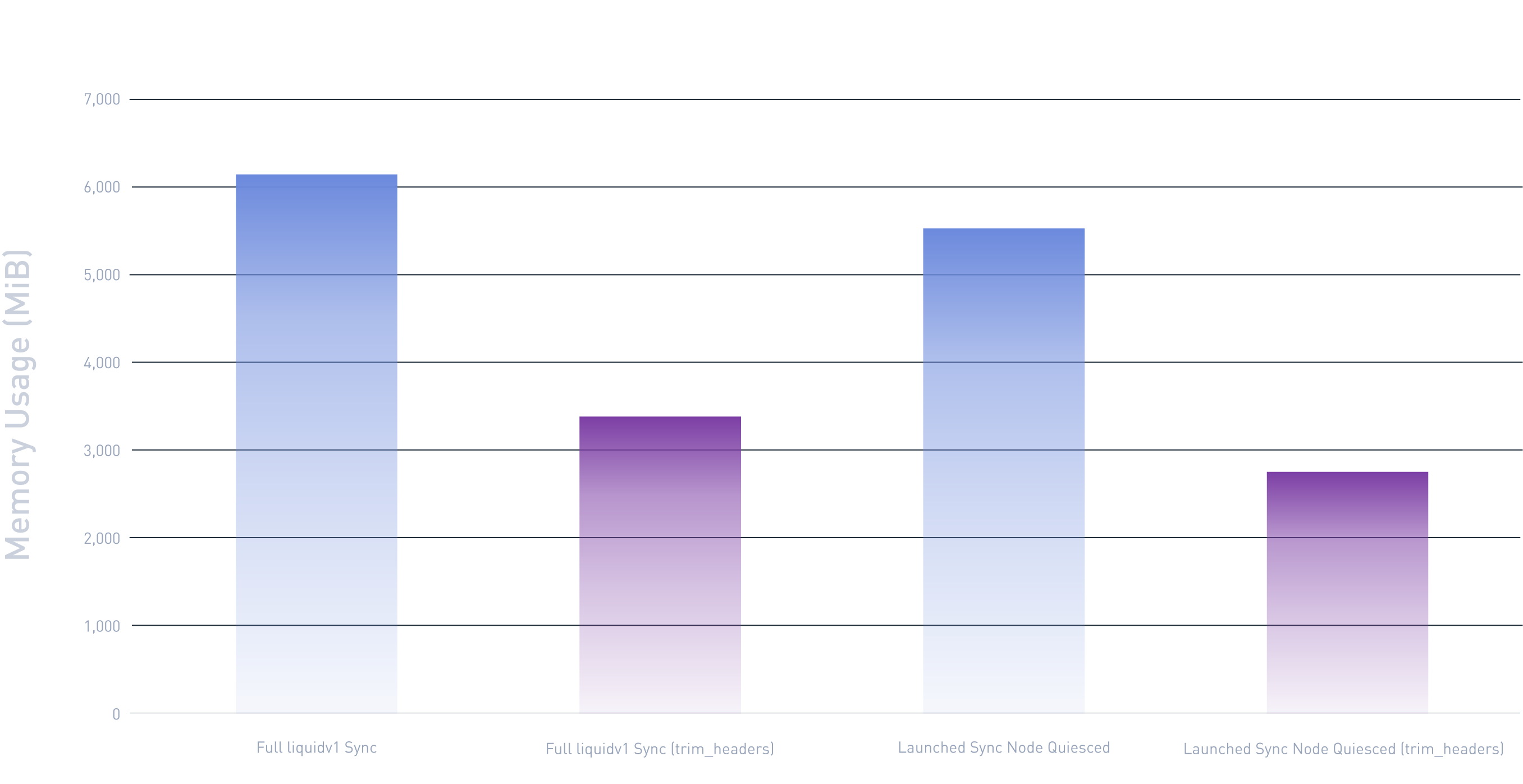
Regarding front-end updates, Blockstream released a new Liquid options client, a proof-of-concept application allowing fully-collateralized options contracts without intermediaries. The client runs locally, connects to Liquid, and can be called via a simple web front-end or local application using RPC. The team also released a new version of the Blockstream Asset Issuer, adding support for an in-browser wallet, updating the UI to enhance user experience, and rolling out new functionality like reissuing, distributing, and burning assets.
Releasing these new Liquid protocol updates and tooling will allow developers to deploy new financial products and continue to build out Bitcoin's financial layer.
Lightning Network
Core Lightning (CLN) is our open-source Lightning implementation that is fully modular and specification compliant to ensure interoperability with the rest of the network.
With contributions from 31 developers and others in the community, the CLN team released v23.02 in February, introducing features like an SQL plugin for running complex queries, performance improvements for large nodes, and updated specs on dual funding and BOLT12 offers.
The SQL plugin aids in custom querying numerous CLN database tables and works in tandem with the commando plugin for remote data access. v23.02 also included several performance improvements that target issues experienced by power users relating to node startup and peer connection.
Two experimental features introduced by CLN (dual funding and offers) are nearing specification adoption as both undergo interoperability testing by additional Lightning implementations.
If you are a CLN node runner, we encourage you to become a part of our expanding CLN Build On L2 community, where you can learn more about how to optimize your node and engage with CLN developers and power users.
Blockstream Green
This past quarter, we unveiled an all-new redesigned Green wallet offering an enhanced self-custody experience for both beginners and advanced users. The revamped Blockstream Green mobile app, currently in development for desktop as well, provides users with a more refined experience based on their particular self-custody need and a sleeker, more intuitive interface.
Under the redesign, users start with a singlesig wallet setup, generating a single recovery phrase. Security can then be heightened with multisig via two-factor authentication (2FA), BIP 39 passphrases, and optionally taking keys offline using a hardware device such as the Blockstream Jade or Trezor.
The Blockstream Green redesign is a precursor to further updates, including Lightning integration (via Greenlight) for fast, affordable bitcoin payments and watch-only wallets for tracking spending habits and enhanced security when paired with an even greater option of hardware devices.
Users can gain priority access to new Green features by joining Green’s new beta program before its official release. The program is an excellent opportunity to give us direct feedback and improve your favorite Bitcoin wallet first-hand.
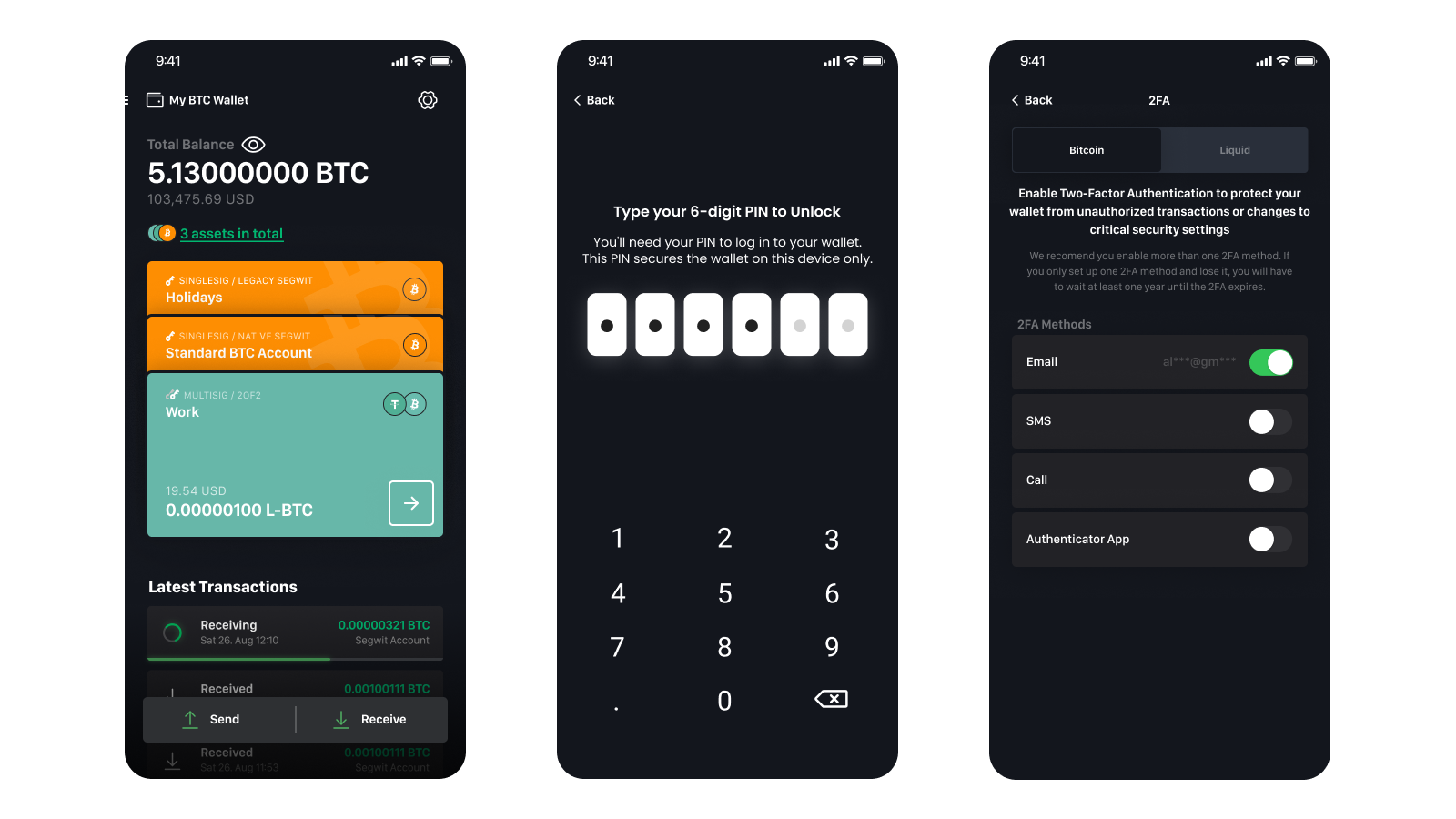
Blockstream Jade
Blockstream Jade, our purely open-source hardware wallet that offers advanced cold storage for Bitcoin and Liquid assets, has introduced several notable features and improvements over the past months.
Jade now supports a fully air-gapped workflow for greater security by reducing the attack surface of your wallet and isolating transaction signing. In addition, a new SeedQR feature allows for secure, convenient backing up of wallet seeds. The new QR scan functionality gives users a wider range of options with which to use their Jade and is now compatible with seven popular wallet platforms.

Jade offers final word calculation and dice rolls for users interested in generating seeds through more entropy-rich methods. BIP 85 support has also been added, allowing users to derive multiple deterministic seeds from a single master seed.
Significant performance enhancements have been made to the hardware wallet, speeding up tasks and processes (like a faster passphrase entry method) and improving quality of life (QoL) to make the user interface smoother and more intuitive.
These recent upgrades have collectively improved Jade's usability, speed, and security. However, the team still has much more on the release roadmap, including Liquid swaps, Miniscript and Taproot support, and an Umbrel app for creating your own blind oracle.
Formalizing Blockstream Research
In the first quarter of the year, we formalized our applied research team, and several of our research initiatives became draft BIPs. Additionally, we published a draft PR for integrating the smart contracting language Simplicity into Liquid.
Since Blockstream's founding in 2014, our team has consistently contributed to Bitcoin research and development, introducing constructs such as OP_CSV, SegWit, and Taproot. Today, we continue to play a key role in the leading edge of cryptography and applied research, with our recent work on Bitcoin innovations like MuSig, FROST, and ROAST, all spearheaded by the newly established Blockstream Research division.
Among the BIPs we introduced this past quarter were the following:
BIP 93: presents the codex32 seed encoding standard for BIP 32 hierarchical deterministic (HD) wallets, allowing seed generation, splitting, reconstruction, checksumming, and verification purely with pen and paper. It leverages Shamir's secret sharing for secure backup and restoration of the master seed.
BIP 327: defines a new method for combining signatures called MuSig2, a more efficient and secure way to sign transactions than the currently used signature scheme, ECDSA.
We also reached an exciting milestone regarding the much-anticipated Simplicity smart contracting language with a draft PR for integrating Simplicity into Liquid. Simplicity is a low-level language designed from first principles as an alternative to Bitcoin Script. Some view it as a potential final soft fork that could ossify the base layer. Once Simplicity is deployed on Liquid, developers can construct more complex applications using fully expressive smart contracts, such as trust-minimized escrow, vaults, and delegation.
Connect with Blockstream
If you or your organization are interested in exploring opportunities for collaboration with Blockstream or considering the integration of one of our technologies into your operations, we encourage you to connect with our team through one of the product pages on the main Blockstream site.
For further updates, you can follow us on Twitter @Blockstream, and join the conversation in our Finance, Green, Jade, Lightning, Liquid, and Satellite Telegram channels as well as the new Build On L2 community platform.
